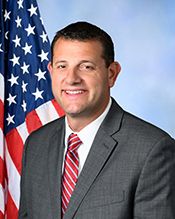0
Export-Import Bank Reform and Reauthorization Act of 2015
1/11/2023, 1:28 PM
Congressional Summary of HR 597
Export-Import Bank Reform and Reauthorization Act of 2015
TITLE I--TAXPAYER PROTECTION PROVISIONS AND INCREASED ACCOUNTABILITY
(Sec. 101) This bill amends the Export-Import Bank Act of 1945 to set at $135 billion, for each of FY2015-FY2019, the authorized aggregate amount of loans, guarantees, and insurance the Export-Import Bank may have outstanding at any time.
If the rate at which borrowing entities are in default on a payment obligation (default rate) is 2% or more for a quarter, the Bank may not exceed the amount of loans, guarantees, and insurance outstanding on the last day of that quarter until the default rate becomes less than 2%.
(Sec. 102) The Bank shall build to and hold in reserve, to protect against future losses, at least 5% of its aggregate amount of disbursed and outstanding loans, guarantees, and insurance.
(Sec. 103) This bill amends the Export-Import Bank Reauthorization Act of 2012 (EIBRA) to require the Government Accountability Office's quadrennial review of the adequacy of the design and effectiveness of the Bank's fraud controls to include review of the Bank's compliance with these controls.
(Sec. 104) An Office of Ethics is established within the Bank to recommend administrative actions to establish or enforce standards of official conduct.
(Sec. 105) A Chief Risk Officer of the Bank is established to oversee all issues relating to risk within the Bank.
(Sec. 106) A Risk Management Committee is also established to:
- oversee periodic stress testing on the entire Bank portfolio and the monitoring of industry, geographic, and obligor exposure levels; and
- review all required reports on the Bank's default rate.
(Sec. 107) The Bank's Inspector General shall conduct an audit or evaluation of the Bank's portfolio risk management procedures, including its implementation of the duties assigned to the Chief Risk Officer.
(Sec. 108) The Bank may establish a pilot program under which it may enter into contracts and other arrangements to share risks associated with its provision of guarantees, insurance, or credit, or participation in the extension of credit.
The aggregate amount of liability the Bank may transfer through risk-sharing under a contract or other arrangement may not exceed $1 billion, nor a total of $10 billion during a fiscal year.
TITLE II--PROMOTION OF SMALL BUSINESS EXPORTS
(Sec. 201) This bill directs the Bank to:
- increase from 20% to 25% of its lending authority the amount made available to finance direct exports by small business concerns, and
- include in its annual report to Congress a report on its programs for U.S. businesses with less than $250 million in annual sales.
TITLE III--MODERNIZATION OF OPERATIONS
(Sec. 301) This bill requires the Bank to implement policies to accept electronic payments and transaction documents.
(Sec. 302) The Bank's authority to use a portion of its surplus to update its information technology systems shall extend through FY2019.
TITLE IV--GENERAL PROVISIONS
(Sec. 401) The bill reauthorizes through FY2019 the Bank, the Sub-Saharan Africa Advisory Committee, and authority for dual use exports (of nonlethal defense articles or services primarily for civilian use).
(Sec. 402) The principal amounts of medium-term financing by the Bank shall be limited to $25 million.
The bill increases from a minimum of $10 million to a minimum of $25 million the amounts of:
- long-term loans or loan guarantees the Bank shall seek to ensure that U.S. insurance companies have a fair and open competitive opportunity to insure in connection with any transaction for which the loan or guarantee is provided,
- working capital export loans and guarantees to small businesses, and
- long-term support for projects to which certain procedures apply regarding the potential beneficial and adverse environmental effects of goods and services for which direct lending and guarantee support is requested.
If the long-term support for projects subject to environmental effects consideration is less than $25 million, the minimum threshold shall be the one established pursuant to international agreements, including the Common Approaches for Officially Supported Export Credits and Environmental and Social Due Diligence, as adopted by the Organisation for Economic Co-operation and Development Council on June 28, 2012, and the risk-management framework ("Equator Principles") adopted by financial institutions for determining, assessing, and managing environmental and social risk in projects.
TITLE V--OTHER MATTERS
(Sec. 501) This bill prohibits the Bank from:
- denying an application for financing based solely on the industry, sector, or business that the application concerns; or
- promulgating or implementing policies that discriminate against an application based solely on the industry, sector, or business that the application concerns.
These prohibitions apply only to applications for Bank financing for projects concerning the exploration, development, production, or export of energy sources and the generation or transmission of electrical power, or combined heat and power, regardless of the energy source involved.
(Sec. 502) The EIBRA is amended to require the President instead of the Department of the Treasury to initiate and pursue negotiations to end export credit financing.
The President shall propose to Congress a strategy to pursue with other major exporting countries, including Organisation for Economic Co-operation and Development (OECD) members and non-OECD members, to eliminate over a 10-year period subsidized export-financing programs, tied aid, export credits, and all other forms of government-supported export subsidies.
(Sec. 503) The Bank shall study the extent to which products it offers are available and used by companies that export information and communications technology services and related goods.




